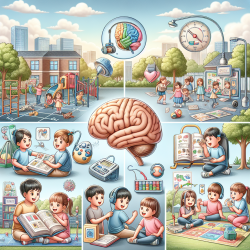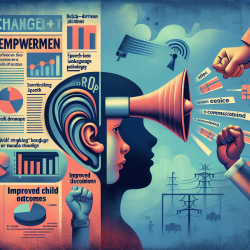Traumatic Brain Injury (TBI) in children can lead to significant language impairments that affect verbal communication, reading, and writing. These impairments can have profound impacts on a child's academic achievement and social interactions. Drawing from the research article "Habilets langagires aprs un traumatisme craino-encphalique dans l'enfance," this blog post aims to provide practitioners with insights and strategies to enhance the language skills of children who have experienced TBI.
Understanding the Impact of TBI on Language Skills:
- Language Deficits: Children with TBI may experience a range of language deficits, including difficulties with expressive and receptive language, naming, fluency, and discourse. These deficits can vary in severity and may evolve over time as the child develops.
- Cognitive-Linguistic Challenges: Beyond language-specific deficits, children with TBI often face cognitive-linguistic challenges that affect their ability to use language effectively in social and academic contexts. These challenges include problems with memory, attention, and executive functions.
- Impact on Learning: Language impairments can hinder academic progress, particularly in reading and writing. Children with TBI may struggle with literacy skills, which are foundational for success in all academic areas.
Strategies for Supporting Language Development:
- Early Intervention: Early assessment and intervention are crucial for children with TBI. Speech-language pathologists should work closely with families and educators to identify language deficits and implement targeted interventions.
- Individualized Therapy Plans: Therapy plans should be tailored to the specific needs of each child, taking into account the nature and severity of their language deficits as well as their overall cognitive and emotional well-being.
- Integrating Language and Cognitive Skills: Given the interrelatedness of language and cognitive functions, interventions should address both areas simultaneously. Techniques that enhance memory, attention, and problem-solving skills can also support language development.
- Utilizing Technology: Technology-based interventions, such as computer-assisted language learning programs and apps designed to improve vocabulary and grammar, can be effective tools for engaging children with TBI in language learning.
- Family and School Involvement: Engaging families and educators in the intervention process is essential. Providing them with strategies to support language development at home and in the classroom can facilitate generalization of skills.
Research Directions:
The article highlights the need for further research to address unanswered questions about the impact of TBI on language development in children. Future studies should explore the long-term outcomes of early interventions, the effectiveness of specific therapy approaches, and the role of factors such as age at injury and severity of TBI in language recovery.
Conclusion:
Children who have experienced TBI face significant challenges in language development, which can affect their academic and social success. By implementing evidence-based interventions and adopting a collaborative approach involving families, educators, and therapists, it is possible to support these children in overcoming their language deficits and achieving their full potential.
To read the original research paper, please follow this link: Habilets langagires aprs un traumatisme craino-encphalique dans l'enfance.










